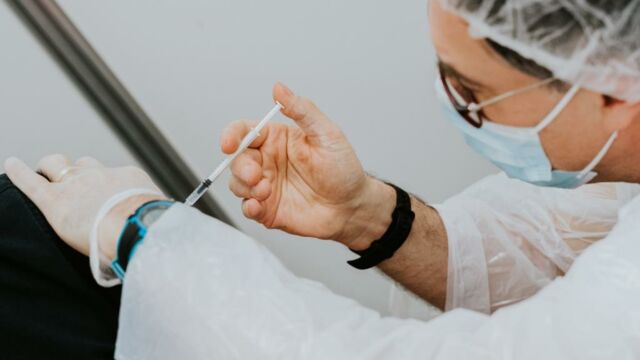While it was not long ago that Britain’s choice of delaying second doses was finally corroborated, PM Boris Johnson has now expressed concerns over the transmissibility of the new B.1.617.2 variant. The constant hike in the number of cases for the Indian strain validates these concerns.
Discover our latest podcast
In a press conference, the PM warned that if the strain shows high transmissibility there would be a ‘serious disruption’ to the roadmap out of lockdown. In other words, if the virus continues to spread at the current pace, Britain would go through a third wave rather than easing the lockdown on June 21.
Why this step?
There has been a rapid increase in the number of cases for the Indian variant. The strain has now more than doubled for two weeks in a row in the UK. Cases went up from 202 to 520 to 1313 in just a fortnight. With this ongoing trend for the strain’s transmissibility, Chief medical officer Professor Chris Witty said:
We expect over time this variant will overtake and come to dominate in the UK in the way that B.1.1.7 took over and other variants have taken over prior to that.
Amidst these distressing reports, Mr Johnson said:
Following advice from the Joint Committee on Vaccination and Immunisation, we will accelerate remaining second doses to the over-50s and those clinically vulnerable right across the country so they are just eight weeks after the first dose, and if you are in this group the NHS will be in touch with you.
This step would ensure that the people across Britain have the most potent possible protection against the virus at the earliest opportunity. Further, this would also aid in moving ahead with the current plan and entering stage four of easing lockdown. To further strengthen their stance, more vaccine centres are being opened up, along with increasing the operating hours, however, people below 50 will continue to get their second dose at 12 weeks only.
The deadly Indian variant
With the emergence of the high number of Indian variant cases, there is a strong chance that if Britain does not take proper measures, it could move towards an unanticipated third wave sooner than conceivable. According to the government scientific advisers, there is a ' realistic possibility ' that the new variant could be 50% more transmissible than the Kent Variant. While the risk remains low, four people in the UK have died due to the Indian variant. To avoid more deaths in future, Mr Johnson stated:
We will also prioritise first doses for anyone eligible who has not yet come forwards, including the over 40s - and I urge anyone in those groups to come forwards as soon as you can.
Although steps are being taken for controlling the spread of the Indian variant, it appears as if the scientists still do not know whether the increase in cases will translate into more hospitalisations and more severe illness.















